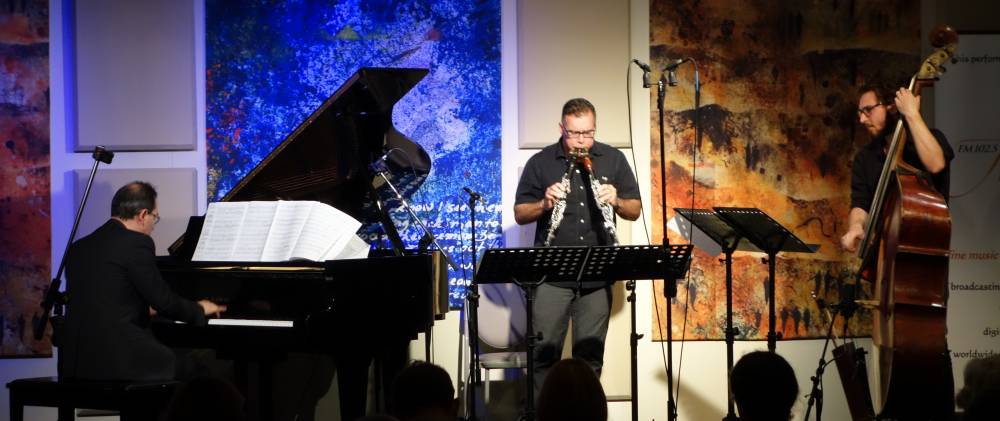VJs, February 5

Occasionally a prophet-like musician arrives to demolish preconceptions of a particular instrument’s limits. Franz Liszt did so with the piano, John Coltrane the saxophone, Jimi Hendrix the electric guitar and Renaud Garcia Fons the double bass. Canada’s Francois Houle is such a clarinettist.
He has borrowed some of the extended techniques applied by the likes of Evan Parker to the saxophone and originated approaches of his own. His particular area of development is multiphonics: the ability to play more than one note simultaneously on a supposedly monophonic instrument. Of course such explorations must be of musical as well as “scientific” value, and Houle’s use of them was replete with astounding beauty as well as complexity.
It helped that the main context in which he was heard was such a vividly expansive composition as Yitzhak Yedid’s Myth of the Cave, inspired by Plato’s Allegory of the Cave, a tale of the potential for enlightenment, and humanity’s brutish tendency towards denial. Performed by Houle, Israel’s Yedid (piano) and Australia’s Samuel Pankhurst (double bass), the five-part, hour-long suite encompassed a spectacularly sophisticated dialogue between composed and improvised music.
The second movement, Non-Believer’s Prayer, had the piano creating something remarkably like a Joycean internal monologue, with thoughts possibly of doubt, fear or regret gatecrashing a more benign pensiveness. The section ended with Yedid holding the sustain pedal down while the ghosts of a swarm of notes faded slowly into a crowded ether.
In the third movement, Imaginary Ritual, Yedid again kept the sustain pedal depressed while Houle aimed the bell of his clarinet into the piano, triggering a Milky Way of overtones. The fourth movement, Liturgical Sorrow, had Yedid playing as softly and ominously as distant thunder, into which the bass came bulldozing at its most potent – one of many examples of eye-watering contrast. This gave way to solo clarinet that was an entire ecosystem of sounds and possibilities, as were the fleeting improvisations comprising the second set.